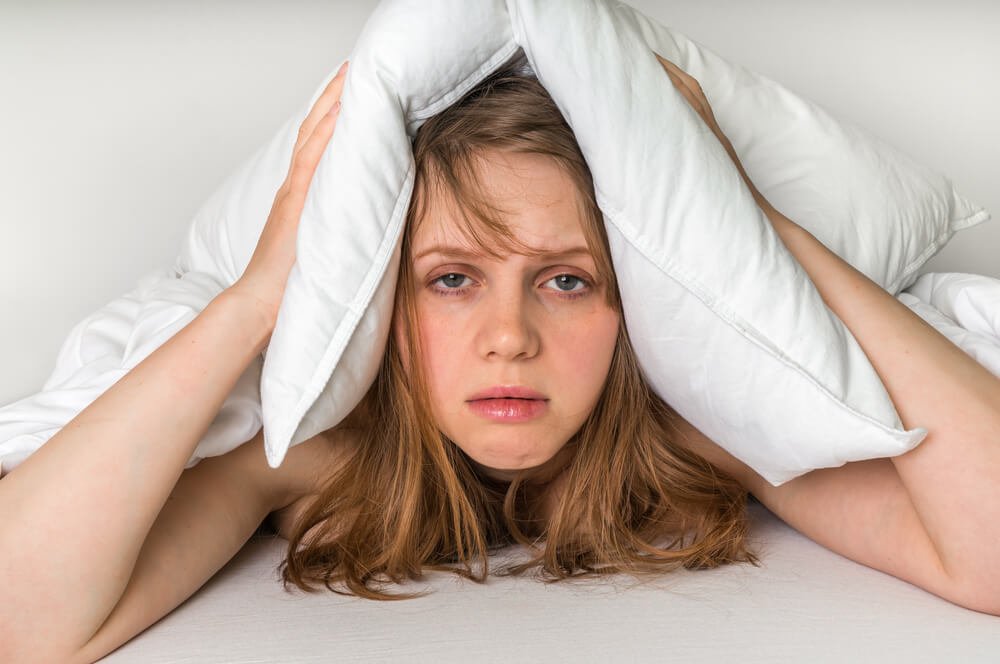Sleep deprivation is what lack of sleep can be referred to as. When you are not sleeping regularly, the body is unable to perform to the best of its ability on a daily basis not to mention can increase blood pressure and risk of other health problems. Not to mention, one of the more serious sleep deprivation symptoms is being drowsy. When you are in the safety of your home, there’s no harm in being drowsy but if you or someone you love is showing a lack of sleep symptoms such as drowsiness and get behind a wheel, it is similar to driving intoxicated. Continue reading to learn about various sleep deprivation symptoms as well as the effects of lack of sleep on the body.
Sleep Deprivation Symptoms
Common effects of lack of sleep can be noted not only in daily performance but also in the ability to stay awake. Feeling drowsy and sleepy throughout the day is the most common lack of sleep symptoms followed by the ability to fall asleep five minutes after going to bed. Another one of the effects of lack of sleep can be experienced as microsleeps where you and your body falls asleep while still being awake.
The unfortunate truth is that lack of sleep is very common in today’s society. Sleep deprivation can derive from over stimulation from social media, caffeine and things like the television. Other causes of sleep deprivation can be medical problems that should be examined by a doctor such as insomnia, parasomnia, circadian rhythm sleep wake disorder or a different type of sleep disorder.
A high percentage of Americans suffer from the effects of lack of sleep on a daily basis and may be unaware of the stress it’s causing on the body. If the body survives on little sleep over long periods of time it can cause long lasting sleep deprivation symptoms such as:
- Higher risk for type 2 diabetes
- Higher levels of hormones related to stress
- Increased risk of cardiovascular disease
- Anxiety
- Loss of memory or difficulty remembering things
- Weight gain
- Less tolerance for pain
- Extreme tiredness throughout the day
- Less ability to naturally reduce inflammation
- Problems with cognitive function
- Problems with decision making
- Difficulty reacting in real time
- Could even onset aging faster
Although the chances of dying due to lack of sleep is low, if you go continuous days without sleep it is possible. There have been no human clinical studies that show death after lack of sleep but studies have been performed on rats that show death after severe lack of sleep. If you believe that you may suffer from a sleep disorder, it’s important to speak to your doctor about your concerns. Although you may not notice the side effects immediately, over time lack of sleep will wreak havoc on the body.
Addressing Sleep Deprivation
Due to the severity of the lack of sleep symptoms, it’s important to promote a healthy sleeping schedule and habits. Here are a few ways to avoid a lack of sleep and avoidance of distractions at the time for sleep:
- Make sure that the bedroom is a dark place that is also quiet and cool
- Leave work at work, do not work in the bedroom
- Keep televisions out of the bedroom, or at least off at night
- Leave tablets and mobile phones outside of the bedroom at night or away from the bed
- Stay on a sleeping schedule, staying within a normal wake up time varying only around 1 hour
- Don’t over eat before bed, or at least three hours before going to sleep
- Avoid caffeine in the late afternoon and evening
- Avoid alcohol one hour before going to sleep
As stated above, if you notice that your sleeping habits are normal but are not sleeping normally, speak to your doctor about your concerns.
